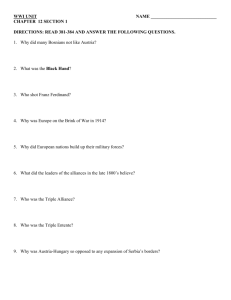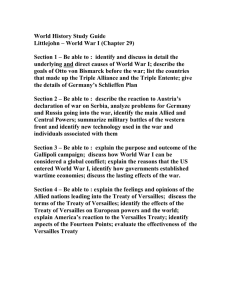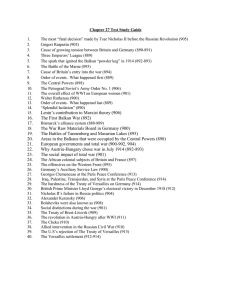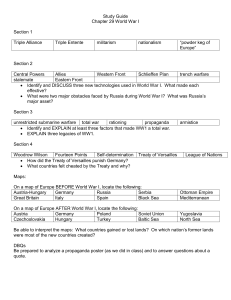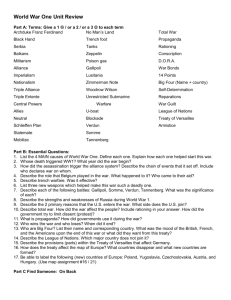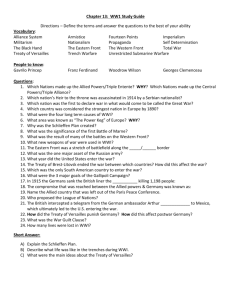World War I Timeline: Key Events & Treaty of Versailles
advertisement
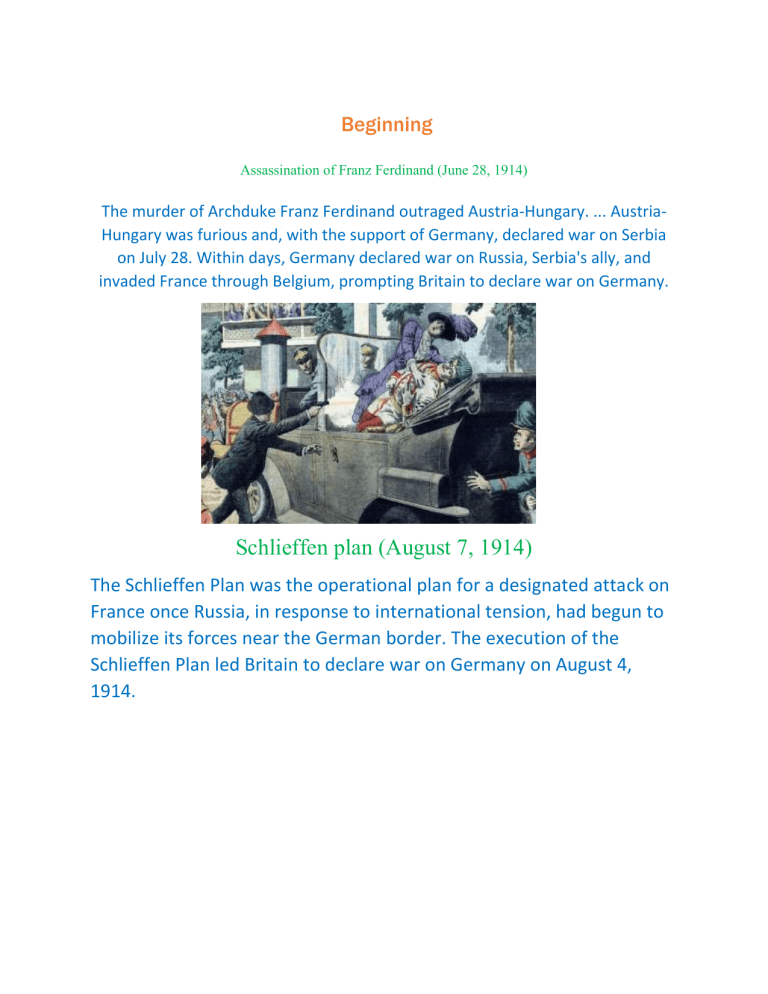
Beginning Assassination of Franz Ferdinand (June 28, 1914) The murder of Archduke Franz Ferdinand outraged Austria-Hungary. ... AustriaHungary was furious and, with the support of Germany, declared war on Serbia on July 28. Within days, Germany declared war on Russia, Serbia's ally, and invaded France through Belgium, prompting Britain to declare war on Germany. Schlieffen plan (August 7, 1914) The Schlieffen Plan was the operational plan for a designated attack on France once Russia, in response to international tension, had begun to mobilize its forces near the German border. The execution of the Schlieffen Plan led Britain to declare war on Germany on August 4, 1914. Triple Alliance & Triple entente By 1914, the three nations of the Triple Alliance, Germany, AustriaHungary, and Italy, faced the three nations of the Triple Entente: France, Russia, and Great Britain. The spark that would ignite a war fire was about to ignite. Middle Battle of Marne (September 6, 1914) First Battle of the Marne (September 6-12, 1914), an offensive during World War I by the French Army and the British Expeditionary Force (BEF) against the Germans who had invaded Belgium and north-eastern France and were at less than 30 miles (48 km) from Paris. Red Baron Manfred von Richton was Germany's most famous combat ace of the First World War. Richton was nicknamed the 'Red Baron' and officially shot down 80 Allied aircraft, more than any other pilot during World War I. ... British pilots also called him the 'Red Knight' in recognition of his nobility. Battle of Somme (July 1, 1916) The Battle of the Somme, also known as the Somme Offensive, was a World War I battle waged by the armies of the British Empire and the French Third Republic against the German Empire. It took place between July 1 and November 18, 1916 on both sides of the upper Somme river in France. End Treaty of Versailles (June 28, 1919) The Versailles Treaty was the most important of the peace treaties that ended the First World War. The Treaty ended the state of war between Germany and the allied powers. signed on June 28, 1919 at Versailles. Of the many provisions of the treaty, one of the most important and controversial required "Germany [to] accept the responsibility of Germany and its allies to cause all loss and damage" during the war League of Nations (January 10, 1920) The League of Nations was an international organization, based in Geneva, Switzerland, created after World War I to provide a forum for resolving international disputes. It was an international organization founded after the 1919 Paris Peace Conference. The League's goals included disarmament, preventing war through collective security, resolving disputes between countries through negotiating diplomacy, and improving global well-being. Luis Hernandez
